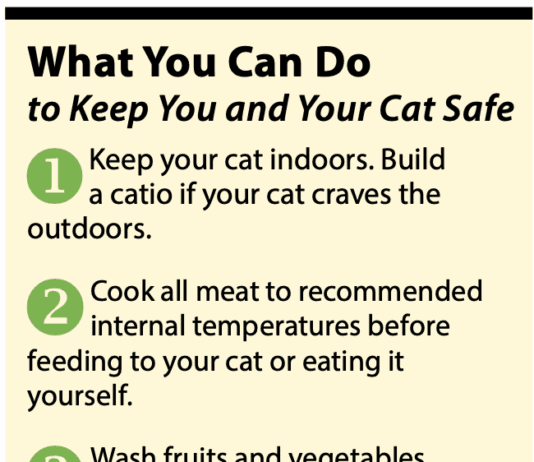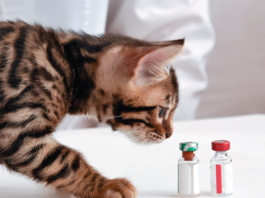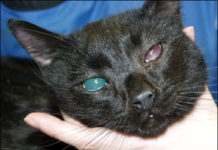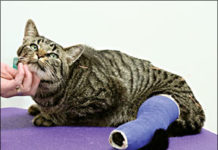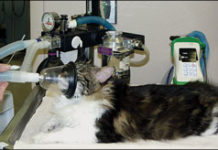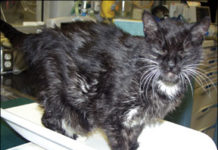Caring for the Constipated Cat
Your cat has always been a creature of habit when it comes to moving his bowels. Twice a day - once in the morning and once in the evening - he shuffles to his litter box and gracefully relieves himself. If Plato should ever break that pattern and not move his bowels for a day or two, youd be wise to have him examined by your veterinarian right away. Its possible that he is constipated, a condition that will probably be easily relieved if spotted early. Without diagnosis and proper treatment, however, his constipation could progress rapidly to a serious threat to his health, perhaps his life.
Danger in the Garden
Nothing gives you more pleasure on a warm and sunny afternoon than to sit peacefully beside your garden and thrill at the sight of the blossoming lilies, chrysanthemums and foxglove. You especially like the graceful yew shrubs bordering this little patch of earth - a touch you added only recently. And the philodendron thats finally coming into its own, way back there near the fence, is beautiful beyond words. Your cat sits quietly in your lap, apparently enjoying the view as much as you are. But heaven forbid that she would decide to investigate the garden at close range and show her horticultural appreciation by nibbling at one of the plants. Tulips, lilies, foxglove, yew shrubs and philodendron are among hundreds of plants that are known to be poisonous to cats. Ingesting just a small leaf of some common ornamental plants could make your little companion quite ill. And without appropriate first aid and prompt veterinary treatment, swallowing a sizable amount could be fatal to her.
Diagnosis: Cataracts
Cats eyes, like those of humans and many other animals, are complex arrangements of delicate structural components that operate harmoniously in a normal, healthy animal to enable keen vision. Unfortunately, things sometimes go wrong with one or more of these components as a result of disease, aging, traumatic injury or genetically acquired defects. Cataracts can seriously impair a cats vision and even cause blindness. Compared to the frequency of its occurrence in humans and dogs, this ocular disorder is rarely seen in cats, says Thomas Kern, DVM, associate professor of ophthalmology at Cornell Universitys College of Veterinary Medicine. Nevertheless, all cat owners should know the physical and behavioral signs of this disorder and the special needs of a visually impaired feline.
Short Takes: 02/08
Veterinary science is finally taking a serious look at arthritis in cats, as reported in "Evaluation of Client-Specific Outcome Measures and Activity Monitoring to Measure Pain Relief in Cats with Osteoarthritis" (Journal of Veterinary Internal Medicine, Vol. 21, No. 3). Between 25 and 30 percent of older dogs suffer the pain and immobility of osteoarthritis. But veterinary medicine has neither an estimate of the occurrence in cats nor an approved means of pain relief. So researchers at the University of North Carolinas veterinary school asked 13 owners of older cats (between 10 and 19 years) to participate in an experiment. The cats were given complete exams, including X-rays of their legs, hips, paws and spines. To the owners surprise, virtually every cat in the study had several joints where osteoarthritis could be causing pain or restricting movement.
How Acupuncture Works
Three or four decades ago, few cat owners or veterinary practitioners in the U.S. knew anything whatsoever about acupuncture, the centuries-old Chinese system of health care that aims to treat physical disorders and their accompanying pain by inserting needles into specific points on a patients body. Today, thousands of veterinarians throughout the nation routinely practice acupuncture in their clinics, and countless cats are benefiting from it. "Im certainly an acupuncture advocate," says Andrea Looney, DVM, a lecturer in anesthesiology at the Cornell University Hospital for Animals. "I use it in treating between 10 percent and 20 percent of the patients that I see - not only cats, but dogs, horses and other animals as well." Dr. Looney stresses that she relies on acupuncture as a complementary technique, always using it in conjunction with the standard practices of Western veterinary medicine. "The fact that more veterinarians are skeptical and refuse to practice it," she says, "is a sad situation."
X-Rays: An Indispensable Veterinary Tool
Although animals were used in the early 20th century to test the diagnostic potency of X-rays, the first-generation radiologists involved in those experiments could hardly have imagined a time when most veterinary clinics would be equipped with X-ray machinery and radiology would be a mainstay in the diagnosis of many feline physical disorders. It is difficult to pinpoint the time when X-rays came into widespread use among veterinarians, says Peter Scrivani, DVM. However, he points out, the American College of Veterinary Radiology was founded in 1961. "And thats about the time that the use of the technology by veterinarians really started to take off," says Dr. Scrivani, an assistant professor and director of veterinary diagnostic imaging at Cornell Universitys College of Veterinary Medicine.
Arthritis: A Common Problem
Cats are living longer these days, thanks largely to advances in feline nutrition and veterinary medicine in general. Thats good news. The bad news, however, is that these longer life spans give cats a greater chance of developing arthritis - a painful, debilitating and potentially crippling joint disease that is predominantly age-related. In a study conducted a few years ago, researchers carefully analyzed X-rays of the spines and limbs of 100 middle-aged or elderly cats (10 years of age or older). The X-rays revealed that 90 percent of cats over age 12 showed clearly discernible radiographic signs of arthritis.
Anesthesia: What’s Involved? What Are the Risks?
Any surgical procedure that will be painful to your cat - whether its a matter of stitching up a wound, pulling a tooth, repairing a fractured limb or removing a diseased organ - will require that the animals pain perception be dulled, if not totally blocked, by an anesthetic of some sort. Some cat owners find the notion that a pet will be placed under anesthesia a frightening prospect. What are the chances, an owner might wonder, that the animal, while surviving the operation itself, will fail to fully regain its senses? Or worse: What if it fails to awaken from its drug-induced sleep?
Does Your Cat Seem to Be Losing Her Mind?
Your 17-year-old cat, once a fastidious creature, has been ignoring her litter box for the past several months, defecating and sometimes urinating wherever she pleases throughout the house. She spends most of the day either fast asleep or, if awake, staring blankly at a wall. And at night she wanders about the house in the dark, wailing pathetically. Considering that she seems to be in good physical health, youre apt to wonder whether the cat, at the age of 17 (the equivalent of 85 years or so in a human) might be losing her mind.
Short Takes: 10/07
If you need refills of prescription medications for your cat - and youre tempted to buy the drugs at discount prices from a website - you might wonder whether that bothers your veterinarian. Indeed it does, according to an article in the trade journal Veterinary Economics (Vol. 48, Issue 8). And vets have some persuasive reasons why you should continue to buy cat drugs from them. But first, some reasons to think twice about your cat-care budget: The typical mark-up (beyond the cost to veterinarians) for dispensed medications is 150 percent. Heartworm, flea and tick-control products tend to be marked up 100 percent. And therapeutic food, which some cats eat throughout their lives, is sold by veterinarians at about 45 percent above cost.
Compounding May Help Your Medication Woes
Some cats are model patients. They sit calmly for nail trims and they let you look inside their mouths and even brush their teeth, purring all the while. Other cats - perhaps the majority - are not so accommodating. You just think about trimming their nails and they disappear. Getting a pill into them requires protective gear and strong determination. Drew Weigner, DVM, a board-certified member of the American Board of Veterinary Practitioners and founder of The Cat Doctor in Atlanta, Georgia, knows all about pill resistance.
Ask Elizabeth: 09/07
Dear Elizabeth: My vet tells me that my indoor-only cat, Izzy, needs to be vaccinated for rabies. We live in an apartment in New York City and Izzy is never outside, so why does she need a rabies vaccine?

